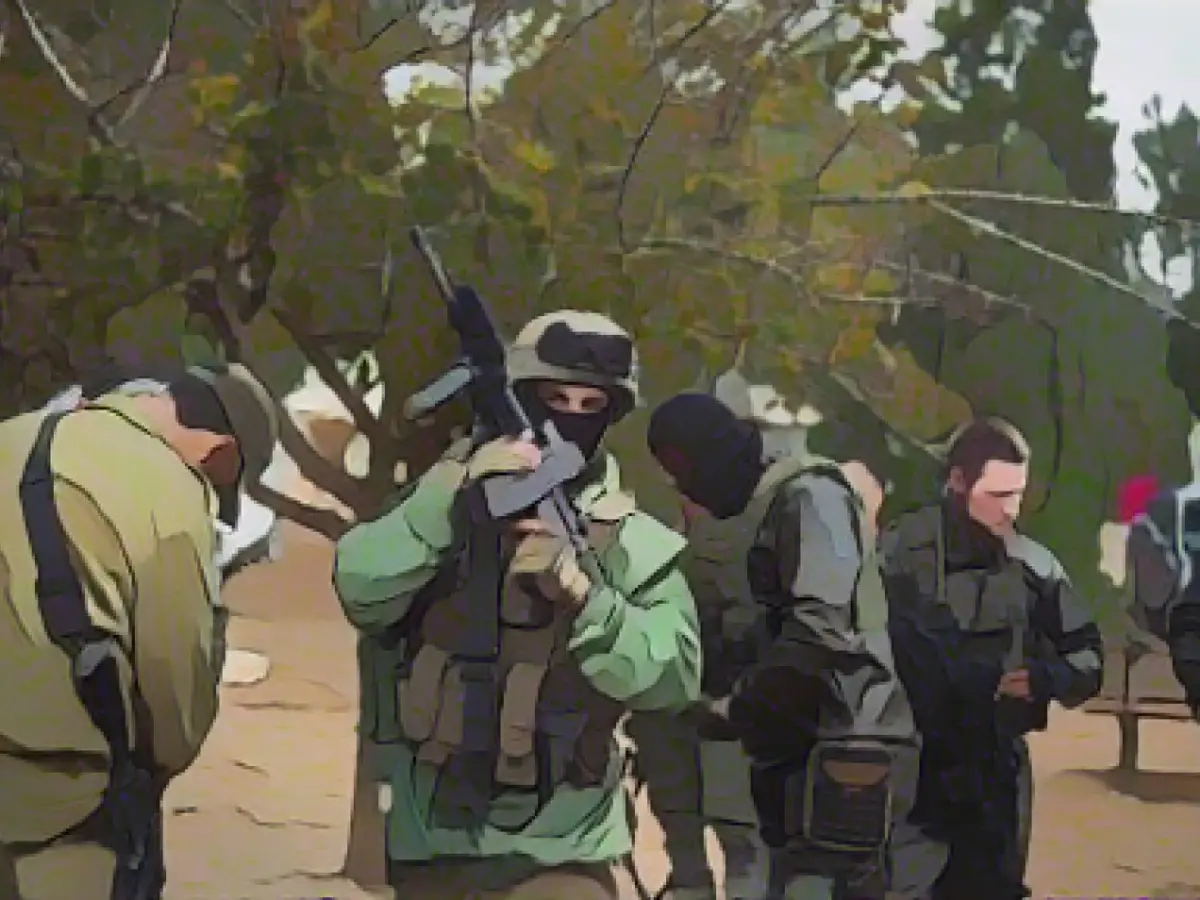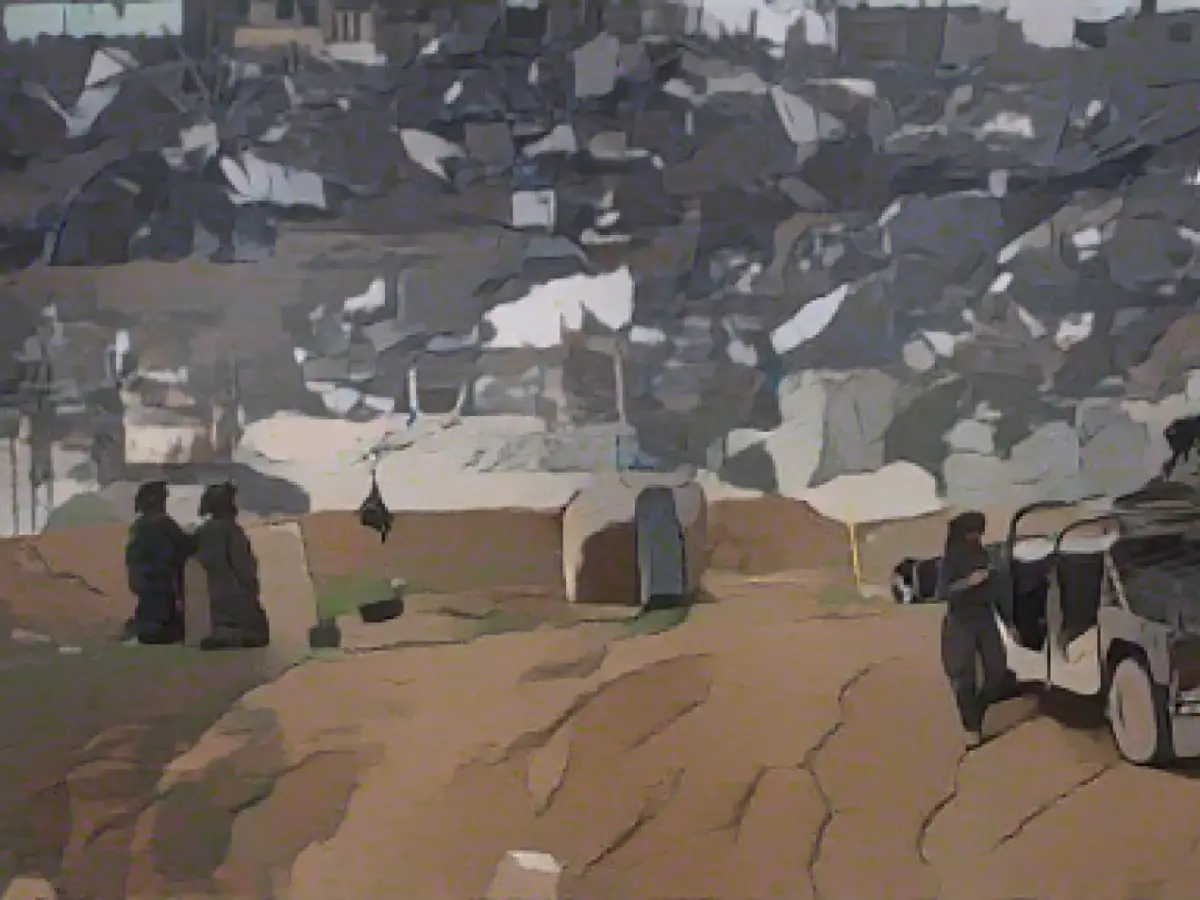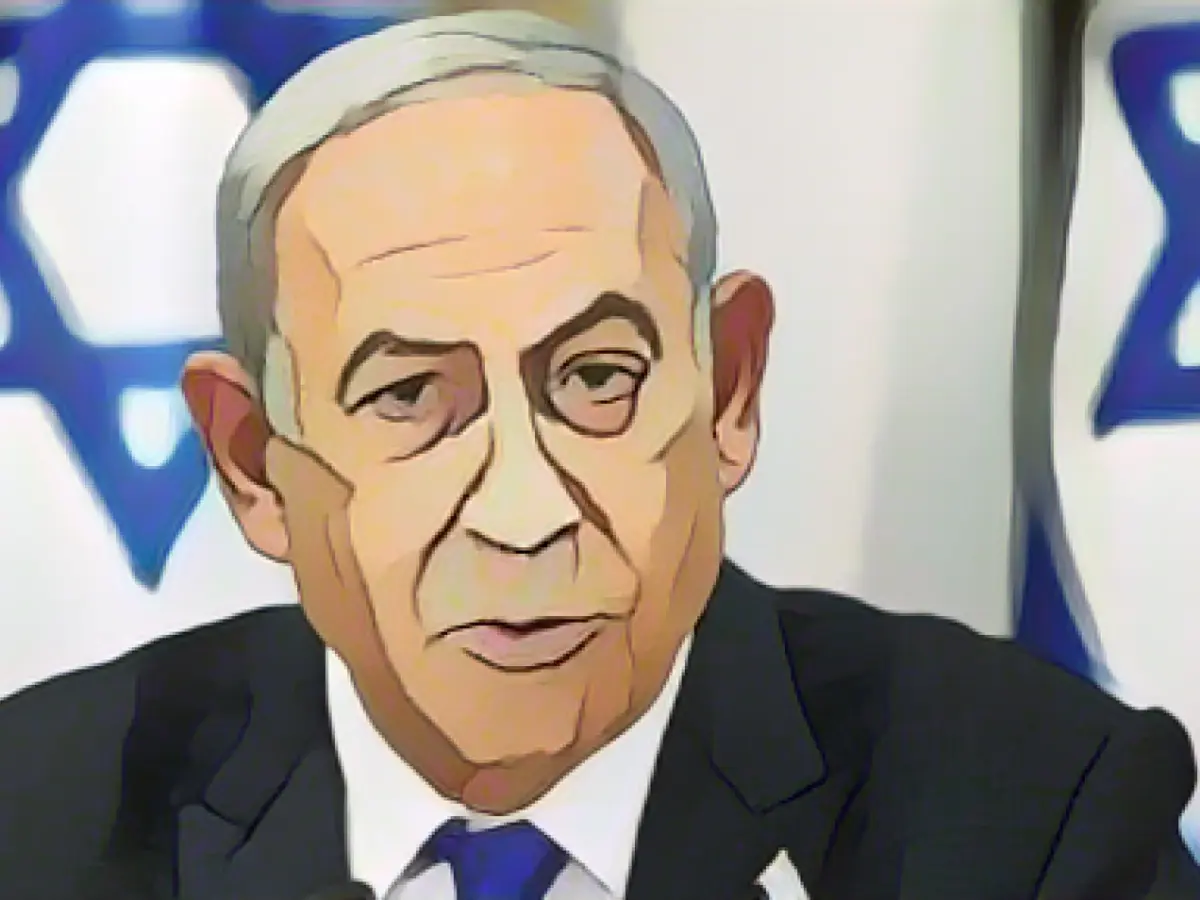The Gaza Strip Crisis: International Call for Ceasefire Amidst Conflict
International pressure is growing on Israel as its military action against Hamas in the Gaza Strip continues, causing widespread destruction and loss of life.[1][2] At the United Nations General Assembly, over 150 countries, including Germany, demanded an immediate humanitarian ceasefire.[1] However, Israel indignantly rejected the call, with its ambassador to the UN asserting that Hamas's actions and those who support a ceasefire are enabling the terrorist group to commit atrocities.[2]
The conflict was sparked by a terrorist attack in Israel on October 7, which resulted in over 1,200 deaths on the Israeli side.[1] In response, Israel launched a counter-offensive to destroy Hamas.[1] According to UN figures, more than 37,000 buildings in Gaza have been damaged or destroyed, and the Hamas health authority reports over 18,600 deaths and 50,000 injuries.[1]
The Israeli army reported carrying out over 250 attacks on Hamas positions in the Gaza Strip the previous day, using airstrikes, ground forces, and naval units.[1] Meanwhile, extremist Palestinians have continued to attack Israel with rockets, causing rocket alerts in border towns near the Gaza Strip.[1] Forty-five Israeli military personnel have been killed during the operation, with 115 soldiers dying in a single incident.[1]
Germany has expressed its concern for the catastrophic situation in Gaza, noting that civilians are barely receiving supplies or medical treatment.[1] As a result, Germany has announced it will resume development cooperation with the Palestinian territories, which was suspended following the Hamas attack.[1][3] The move is intended to alleviate suffering in Gaza and is seen as an important signal by aid workers and international observers.[3]
However, Israel has rejected the UN decision, with its ambassador suggesting that those calling for a ceasefire are enabling Hamas to continue its atrocities.[2] The USA, while voting with Israel at the UN, has not shied away from admonishing its ally. President Biden has stated that Israeli Prime Minister Benjamin Netanyahu must change his approach, as the European Union and most of the world are beginning to lose support for Israel due to its "indiscriminate bombing" of Gaza.[2]
Norway's Foreign Minister Anniken Huitfeldt has also expressed concern about the situation in Gaza, calling on all parties to work towards a lasting peace agreement.[4] Huitfeldt emphasized that Israel has the right to defend itself but urged Israel to use its military might responsibly and refrain from targeting civilians.[4]
According to UN organizations, the situation in Gaza remains critical, with aid workers warning of the dire need for humanitarian aid and supplies.[1] With the ceasefire call falling on deaf ears, the conflict shows no signs of abating.
Enrichment Data
The ongoing conflict in the Gaza Strip between Israel and Hamas is a complex issue with deep-rooted historical and political dynamics. Here are some relevant perspectives:
- Historical Context:
- The Palestinian-Israeli conflict dates back to the partition of Palestine in 1948, which led to the displacement of hundreds of thousands of Palestinians and the establishment of the state of Israel.[5] The Gaza Strip, along with the West Bank and East Jerusalem, are territories claimed by Palestinians as part of a future independent state, which Palestinians have never recognized as a sovereign and lasting entity.[6]
- International Response:
- The international community has condemned Israel's military operations in Gaza as disproportionate and violating international law.[7] However, many countries, including the USA and European Union, have provided Israel with military and political support, justifying it as necessary for self-defense.[8]
- Humanitarian Implications:
- The prolonged conflict and resulting Humanitarian crisis in Gaza have led to widespread suffering and an urgent need for medical, food, and infrastructure support. The UN and other international organizations have been providing humanitarian aid to Gaza, but the ongoing conflict and restrictions on access to the region have hampered their relief efforts.[9]
- Political Solutions:
- The two-state solution, which calls for the establishment of an independent Palestinian state living side by side with Israel within recognized borders based on the 1967 lines, is the most widely endorsed political solution by the international community. However, both sides have shown reluctance to engage in meaningful negotiations and reach a lasting peace agreement.[10]
resources:
- .
- .
- .
- .
- .
- .
- .
- .








